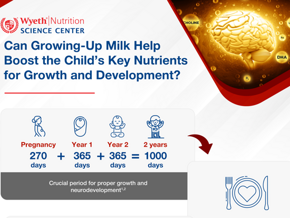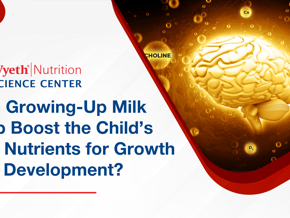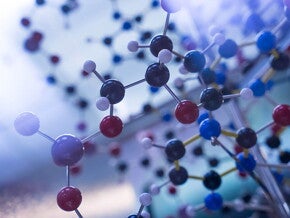![[Hot Science] Production of cow’s milk free from beta-casein A1 and application in early infant nutrition](/sites/default/files/styles/header_image_article_mobile/public/2019-11/016_Baby%27s-feet.jpg.webp?itok=EDkFNjcq)
Article
[Hot Science] Production of cow’s milk free from beta-casein A1 and application in early infant nutrition
Healthy Eating & Hydration
3 min read
Background:
- BC has 13 genetic variants, resulting from single nucleotide polymorphisms (SNP) in the CSN2 gene, and the most common variants found in western dairy breeds are BC A1 and BC A2
- BC A1 and BC A2 variants differ by a single amino acid (histidine vs. proline at amino acid position 67 respectively)
- The presence of His67 in BC A1 facilitates the release of a seven-amino-acid peptide called beta-casomorphin 7 (BCM7) after digestion, while this is less likely in the case of BC A2 with Pro67
- BCM7 displays potent opioid activity and is associated with adverse health effects such as slowed gastrointestinal motility in humans and clinical severity of autism spectrum disorders (ASD) in children
Methods:
- Genotyping and selection of Jersey cows on the basis of the CSN2 A2 SNP, where animals with the CSN2 A2A2 genotype were selected and bred to produce milk containing BC A2 free from BC A1
- The resultant BC A2 milk was added to formulation of an infant formula (BC A2 IF)
- Concentrations of BCM7 release from human milk, BC A2 milk, BC A2 IF and commercially available IF (cow’s milk based with similar total protein content) were evaluated after simulated gastrointestinal digestion (SGID)
Results:
- Relative abundance of BC A2 in BC A2 milk was 0.998 ± 0.008, with BC A1 level not detected
- There were no significant differences in total BC concentration between the different IF tested (p = 0.062), but differences were observed in the amount of BCM7 released
| Quantity of BCM7 in SGID hydrolysates (ug/100mL) (mean ± SEM) | |
|---|---|
| BC A2 IF | 0.860 ± 0.014 |
| Commercial IF 2 | 2.625 ± 0.042* |
| Commercial IF 3 | 1.693 ± 0.012* |
| Commercial IF 4 | 1.962 ± 0.067* |
| Human milk | 0.697 ± 0.007# |
| BC A2 milk | 0.742 ± 0.008# |
*Quantity level is significantly higher than BC A2 IF, p < 0.05
#Quantity level is significantly lower than BC A2 IF, p < 0.05
Conclusion:
- The selection of Jersey cows was able to produce milk comprised of BC A2 without BC A1, which may be used commercially for IF formulation
- SGID revealed BC A2 IF released significantly lower amounts of BCM7 compared to normal cow’s milk based IF
- This study provided insights to direct future investigations into the clinical application of BC A2 protein in infant health
Link to full publication: https://www.ncbi.nlm.nih.gov/pmc/articles/PMC5532557/
Reference
Duarte-Vázquez MA, Garciá-Ugalde C, Villegas-Gutiérrez LM, Garcia-Almendárez BE, Rosado JL. Production of cow’s milk free from beta-casein A1 and its application in the manufacturing of specialized foods for early infant nutrition. Foods. 2017;6:50.
WYE-EM-244-SEP-17
If you liked this post you may also like



